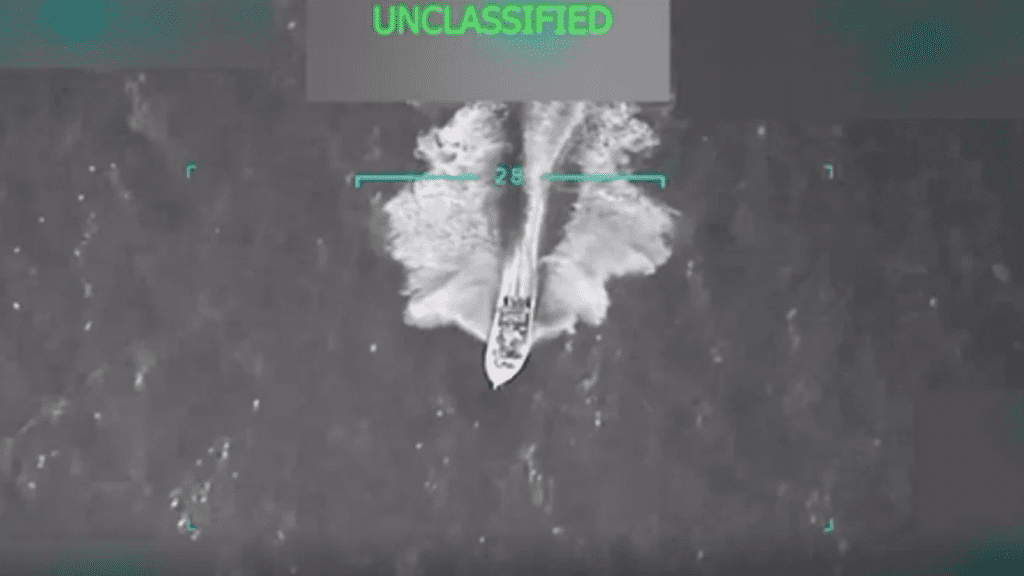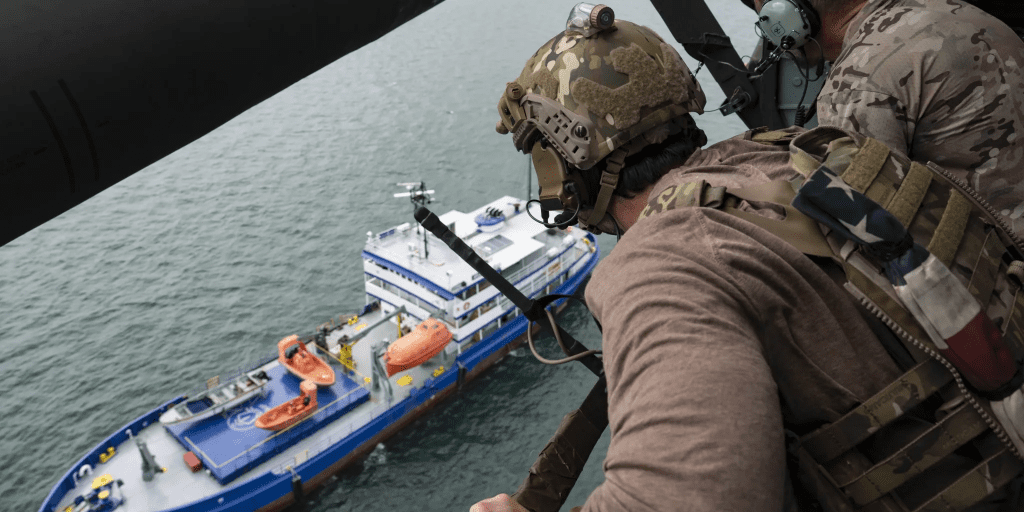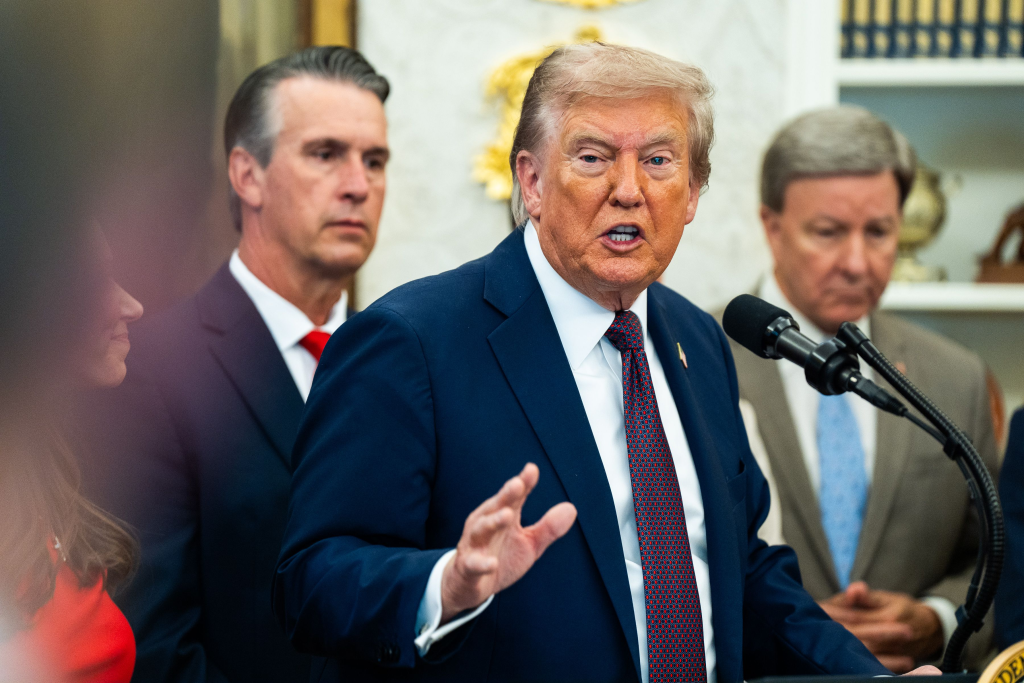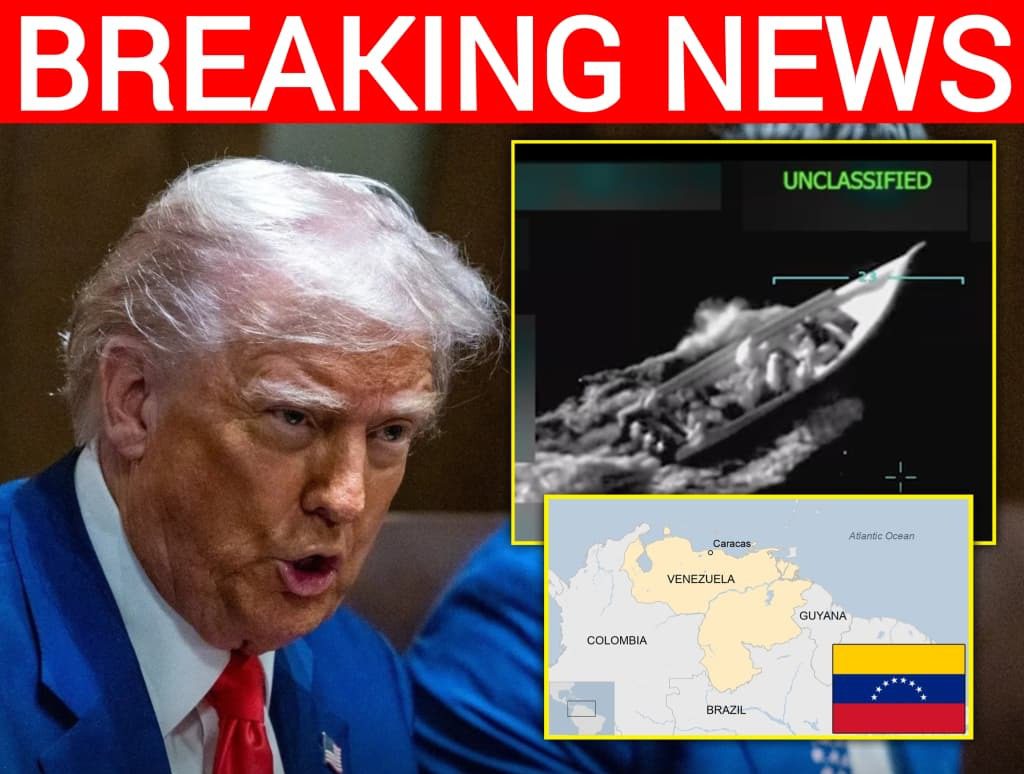President Trump Formally Declares U.S. in Armed Conflict With Cartels in Caribbean Sea After New Strikes
The world shifted yet again on October 2, 2025, when President Donald Trump announced that the United States is now formally engaged in an “armed conflict” against cartel combatants operating in the Caribbean Sea. The declaration, first detailed in a report by The New York Times, marks a dramatic escalation in America’s fight against drug trafficking networks that have long exploited vulnerable sea lanes stretching between Venezuela and U.S. shores. The decision means that the men killed in the latest clashes are no longer being treated as criminal suspects, but as unlawful combatants under the law of armed conflict, opening the door for wider military action.

This announcement did not come out of nowhere. In fact, it follows a string of aggressive U.S. strikes over the past two months. On August 14, 2025, the U.S. Navy intercepted and destroyed a suspected smuggling vessel near Puerto Rico, seizing several tons of narcotics. Just weeks later, another operation in early September targeted a “narco-submarine” believed to be headed north from Venezuela. The most recent and most high-profile event occurred on September 19, when U.S. forces engaged a cartel boat in the Caribbean, leaving multiple smugglers dead. Taken together, these three incidents paved the way for the president’s announcement that America is no longer just policing the seas—it is at war with these networks.

The move allows the administration to bypass lengthy congressional debate, relying on existing authorizations for use of military force to expand anti-cartel operations. This means more strikes, more interdictions, and potentially more aggressive action if cartel-linked groups test U.S. resolve. While critics question whether this broad interpretation of presidential war powers could spark unintended escalation, supporters argue that it is the only language cartels understand. Trump himself has been clear that America will not allow narco-terrorists to establish safe passage across the Caribbean.

The mention of Venezuela adds another layer of tension. For years, U.S. intelligence reports have tied elements of the Venezuelan regime to cartel operations, though direct evidence has been contested. By placing Venezuela in the narrative, the Trump administration signals that it is prepared to act against state-backed smuggling networks if proof emerges. For some, this is a bold stroke of deterrence. For others, it risks blurring the line between counter-narcotics enforcement and geopolitical confrontation.

Public reaction has been predictably divided. Conservative commentators online praised the president’s resolve, with posts urging the military to “keep striking” and finish the job. Others worry that branding this as a formal armed conflict could give cartels propaganda ammunition or destabilize relations with Latin American governments already wary of U.S. intervention. Even so, there is no denying the scale of what happened today. The United States has crossed a threshold—it has shifted the fight against drug cartels from a law enforcement operation into the realm of open warfare.

History has shown that cartel organizations are resilient, adaptive, and ruthless. Declaring an armed conflict with them is not just about sending a message—it is about changing the rules of engagement. For the sailors, airmen, and special operators now tasked with enforcing this new order, the stakes could not be higher. For the American public, this moment is another reminder that global battles are not always fought in faraway deserts or mountains. Sometimes, they unfold just off our own shores.

Whether this new chapter brings long-term security or new risks remains to be seen. But one thing is certain: President Trump has chosen confrontation over hesitation. The United States has declared war on the cartels in the Caribbean, and the world is watching closely to see what comes next.


